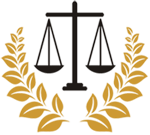Need a Personal Injury Lawyer for a Product Liability Case?
Search Our Site
All Legal Articles
Read Related Legal Articles
Can I Sue for Food Poisoning?
According to the CDC, one in six Americans become ill after consuming contaminated foods or beverages each year, resulting in approximately 128,000 hospitalizations and 3,000 deaths. If you were the victim of food poisoning, you may have a liability claim. Proving a food poisoning claim is challenging, but not impossible, especially if you preserve the evidence in your case.
Causes for Action in a Food Poisoning Suit
Most food poisoning lawsuits fall under the umbrella of defective product liability claims. The basic idea is that you bought a defective product, in this case food, and sustained injury as a result. Possible legal theories in arguing these cases include strict product liability, negligence, and breach of warranty.
In a strict product liability claim, you do not have to prove negligence, only that the food you ate was contaminated and that that contamination caused your illness. A negligence claim states that the defendant's negligent actions caused the contamination that made you ill. You must prove the defendant did not show reasonable care in making or distributing the food that caused your illness. Finally, breach of warranty refers to the implied warranty on products, based on the minimum standards in your state. Contaminated food may constitute a breach of this implied warranty.
How Do I Prove a Food Poisoning Case?
Proving food poisoning will likely be the most difficult part of your food poisoning claim. To win your suit, you must prove two things: that the food was contaminated and that the contamination made you sick. To do so, you need to take proper steps immediately.
First, seek medical attention as soon as you suspect you're the victim of food poisoning. Obtaining a medical diagnosis that your illness resulted from a food-borne pathogen helps prove food caused it. A pulsed-field gel electrophoresis (PFGE) test creates a genetic picture of the bacteria that caused your illness. Ask your doctor to perform a PFGE test.
Next, you must prove the food you ate was contaminated. This often presents difficulties, as there is generally a time delay between when you consumed the food and began feeling ill. Unless other diners experienced the same symptoms or your local health department traces a food poisoning outbreak to its source, proving the cause of your food poisoning is difficult.
Finally, you must prove that the contaminated food made you sick. This is easiest if you can provide a stool sample for testing. If this sample contains the same microbes that were found in the food source, you've strengthened your food poisoning claim.
Who is Liable for Food Poisoning?
Once you've traced the contaminated food item to its source, you want to include anyone responsible for its distribution, up to the point when you consumed it. This chain begins with the slaughterhouse or farm from which the product originated and ends with the establishment from which you bought it, such as a grocery store or restaurant. In between those points, you may find packagers, wholesalers, and distributors. All may be included in your suit.
Can I File a Class Action Lawsuit for Food Poisoning?
A food poisoning outbreak infecting large numbers of people may warrant a class action suit. In this type of suit, victims band together, such as in the 2006-2007 suit against ConAgra after salmonella-infected peanut butter affected over 700 people. You may also join a pre-existing class action suit.
Benefits of joining a class action suit include gaining the suit's lawyers as your own representatives. Additionally, you rarely face any upfront costs and the class action suit covers most of the confusing aspects of filing a liability claim. If you prefer, though, you may choose to not join the class action suit and instead file your own claim.
Collecting Damages in a Food Poisoning Case
Compensatory damages in a food poisoning lawsuit include quantifiable expenses, such as medical bills, lost income, pain and suffering, and emotional distress.
Filing a Claim
Only file a claim if you have monetary damages like medical bills and lost income. Each state sets its own statute of limitations on personal injury and product liability claims. These typically range from six months to two years, so contact a personal injury lawyer to discover whether your case falls within the statue of limitations in your state.
Schedule a Free Food Poisoning Consultation with a Personal Injury Attorney
If you are the victim of food poisoning, schedule a free consultation with an experienced personal injury lawyer. He or she will advise you on the viability of your case and what damages you can reasonably expect to collect.
